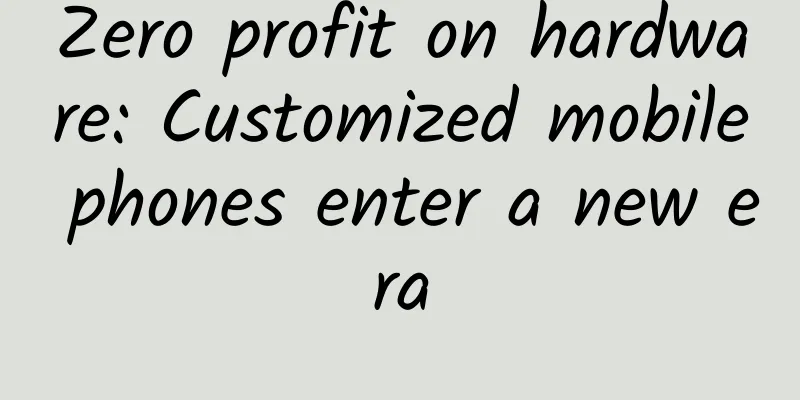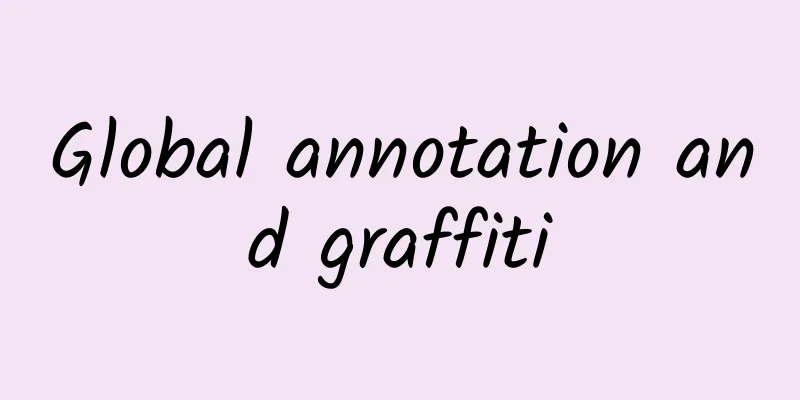Didi Empire: Behind its reckless expansion is a conspiracy

|
What you want to know is exactly what he doesn't want to say. When Didi acquired Uber China, the online car-hailing industry was almost unified. But under the spotlight, the face of this unicorn company with hundreds of millions of registered users has become increasingly vague. Uber holds 5.89% of Didi's shares globally, so how can it enjoy 17.7% of the economic benefits? In the past year, which entity has Didi's tens of billions of dollars in financing gone to? How much shares does each investor hold? Who operates the "Didi Chuxing" app? To whom does the profit actually belong? Few people can answer these questions. Didi, who knew the inside story, kept it a secret and chose to remain silent as usual. Through limited public information and interviews with multiple parties, the Shanghai Securities News reporter found that Didi built a typical VIE structure with the help of the chain of "offshore financing entity - offshore shell company - Hong Kong shell company - domestic wholly foreign-owned enterprise - domestic operating entity". Under this structure, Didi sucked capital wantonly, continuously merged and expanded, and built its own industrial empire, while bearing shocking losses unknown to the outside world. At present, Didi is facing antitrust review from the Ministry of Commerce, and its operating data and complex equity will have nowhere to hide under the sharp eyes of regulators. The embryonic form of the Didi empire Many people may not realize that behind the gentle reminder of "Didi, go now" that they hear almost every day, an ambitious industrial empire is quietly rising and has taken shape. Through the details of the merger between Didi and Uber China, as well as the few words in the announcement of the listed company, we can roughly understand that Didi's valuation (before the merger with Uber China) has reached 27 billion US dollars. The valuation is supported by the huge and complex industrial structure that Didi has quietly established. According to statistics from the Shanghai Securities News, Didi currently has nearly 20 subsidiaries in China alone, and the number of its subsidiaries and grandchildren companies is still growing as new businesses are developed. Due to Didi's deliberate low profile, this criss-crossing network is particularly mysterious. From the perspective of composition, Didi's domestic companies can be roughly divided into three categories: Didi Group, Kuaidi Group and innovative businesses (Uber Group is expected to be added soon). As the core, the flagship companies of the "Didi Group" are Beijing Xiaoju Technology Co., Ltd. ("Xiaoju Technology"), Beijing Didi Infinity Technology Development Co., Ltd. ("Didi Infinity"), and Didi (China) Technology Co., Ltd. ("Didi China"), which is registered in Tianjin. Among them, Xiaoju Technology also has Didi Commercial Service Co., Ltd., Didi Travel Technology Co., Ltd., etc. The "Kuaidi" companies that merged last year are also an important part of the Didi empire, mainly including: Hangzhou Kuaizhi Technology Co., Ltd., Hangzhou Kuaidi Technology Co., Ltd., Shanghai Qiyang Information Technology Co., Ltd., Qixin (Shanghai) Information Technology Co., Ltd., Shanghai Bumblebee Network Information Technology Co., Ltd., etc. In the past six months, Didi has also established a number of new companies, most of which belong to Xiaoju Technology, including: Shenzhen North Shore Commercial Factoring Co., Ltd., South Shore (Shanghai) Insurance Brokerage Co., Ltd., Didu (Beijing) Technology Co., Ltd., Jiaxing Orange Investment Management Co., Ltd., Jiaxing Orange Shared Investment Partnership (Limited Partnership). At the same time, the Hong Kong company of the "Didi system" - Kuaifu Holdings Co., Ltd. also established Zhongfu Financial Leasing (Shanghai) Co., Ltd. (referred to as "Zhongfu Leasing") in the Shanghai Free Trade Zone. As the founder and chairman of Didi, Cheng Wei also personally invested in the establishment of Jiaxing Orange Investment Co., Ltd.... From these dazzling company names, we can find business types such as commercial factoring, insurance brokerage, financial leasing, etc. This means that the investment giants who valued Didi at tens of billions of dollars are not betting on the success or failure of a taxi-hailing app, but on the future of an industrial empire. For example, auto finance is one of Didi’s newly expanded businesses. At the end of March this year, Zhongfu Leasing was established with a registered capital of 1 billion yuan, and Cheng Wei served as the legal representative. At present, the penetration rate of auto finance in my country is far lower than that in developed countries. The establishment of Zhongfu Leasing can be seen as a timely move by Didi to seize resources. In addition, the registration and establishment of insurance brokerage and commercial factoring companies also reveal Didi's ambition to expand into the financial services field. From a horizontal perspective, Didi has never stopped investing in and acquiring companies around the entire online travel ecosystem. In addition to this cross-investment in Uber Global, Didi also invested in Grabtaxi, a Southeast Asian taxi app operator, in August last year, and made a strategic investment in Ele.me in November last year. However, Didi did not disclose the amount of these investments and the proportion of its shares. Cayman Company Structure VIE Didi is even more secretive about its own equity and control relationship. As a result, few people can fully understand the most basic questions, such as who is the operator of the "Didi Chuxing" App and which company the profits actually belong to. Not to mention that after the acquisition of Uber China, Didi gave Uber's global equity, which was embedded with complex designs and arrangements, resulting in a serious mismatch between equity and economic benefits. What is more noteworthy is that although Didi has announced several rounds of financing targets on its official website, after checking all domestic companies affiliated with the Didi Group, these investors are nowhere to be found. Where did the hundreds of billions of dollars of financing go? Shanghai Securities News reporters learned from multiple interviews that Didi’s ultimate company is an offshore company registered in the Cayman Islands, named Xiao-ju Kuaizhi Inc. (abbreviated as “Xiao-ju Kuaizhi”). This company has appeared in Alibaba’s financial report. It was through Xiaoju Kuaizhi that Didi received equity investment from industry giants and capital tycoons such as Tencent, Alibaba, Softbank, Apple, and China Life, as well as debt investment from some investors. So, how does the offshore entity Xiaoju Kuaizhi control the domestic Didi operating entity? A relatively easy-to-find piece of information is that the developer of Didi Chuxing is Beijing Xiaoju Technology Co., Ltd. In this regard, a Didi insider told the Shanghai Securities News reporter: "The operation and revenue of the Didi Chuxing App belong to Xiaoju Technology." Not only that, Xiaoju Technology is also a major shareholder of many "Didi-affiliated" companies, and it seems to be in a flagship position in the Didi empire. However, the actual situation is not that simple. Industrial and commercial data show that Xiaoju Technology has only six natural persons as shareholders. The company was established in July 2012 with a registered capital of 10 million yuan. Among them, Cheng Wei and Wang Gang each subscribed 4.8225 million yuan, Zhang Bo subscribed 155,300 yuan, Xu Tao 96,500 yuan, Wu Rui 72,300 yuan, and Chen Ting 30,900 yuan. Moreover, from the perspective of copyright ownership, Xiaoju Technology only owns the copyright of the first and second generation (V1.0-V2.4) Didi Taxi mobile phone software released in 2013. In comparison, Didi Infinity and Didi China appear to be more powerful, owning Didi's core patents and copyrights. Among them, Didi Infinity owns hundreds of patents including location determination, meeting location reminder, dynamic price adjustment, order push, order diversion, order allocation, travel mode planning, trajectory prediction, fare estimation, balancing travel supply and demand, order filtering, etc.; its copyrights include Didi's driver-side software V2.2.0, which was just registered in July 2016, and Didi's taxi-hailing software V2.6 and V3.4.1, which were registered in 2015. Didi China owns the copyright of the latest Didi Travel passenger-side (Apple and Android) software V4.0.0; in terms of patent rights, Didi China owns fewer patents than Didi Infinity, with less than ten patents, such as order processing, transportation vehicle dispatching, vehicle passenger status estimation, as well as vehicle management system, smart car lock, and transportation tool rental system. Like Xiaoju Technology, the legal representative of Didi Infinity and Didi China is Cheng Wei, but their shareholders are different from Xiaoju Technology, and both are wholly owned by Hong Kong legal persons. From the perspective of registered capital and shareholder background: Didi Infinity, which was established in May 2013, has a registered capital of 5.6 billion yuan, and the only investor is "Xiaoju Technology Hong Kong Co., Ltd."; Didi China, which was established in July 2015, has a registered capital of 200 million US dollars, and the only shareholder is "Didi (Hong Kong) Technology Co., Ltd." The reporter learned from relevant Hong Kong authorities (documents submitted in January this year) that the controlling shareholder of Xiaoju Technology Hong Kong Co., Ltd. is an offshore company registered in the Cayman Islands, Xiaoju Science and Technology. Limited (referred to as "Xiaoju Technology Cayman Company"). Cheng Wei, Wang Gang and Didi's early investor Zhu Xiaohu are directors of the company. Didi (Hong Kong) Technology Co., Ltd. is controlled by an offshore company registered in the British Virgin Islands, CHEERING VENTURE GLOBAL LIMITED (referred to as "Virgin CVG"). As early as August 2013, Virgin CVG officially acquired the actual control of Didi Hong Kong's predecessor, Bumblebee (Hong Kong) Information Technology Co., Ltd. This means that the only shareholder of Didi China evolved from the original "Bumblebee" related company (Bumblebee was merged with Kuaidi earlier). Not only that, the sole shareholder of Qixin (Shanghai) Information Technology Co., Ltd. of the "Kuaidi Group" is also Virgin CVG. Qixin Shanghai's registered capital is US$245 million, and Cheng Wei has been the company's legal representative since August 2015. "This should be a typical VIE structure." A senior person from a large PE institution in Beijing analyzed that "the founders and management team of Didi and other shareholders may all hold shares in the offshore entity Xiaoju Kuaizhi, which may also become the future overseas listing entity; at the next level, Xiaoju Kuaizhi established offshore shell companies (including Cayman companies and Virgin companies), which in turn held 100% of the shares of Hong Kong shell companies (such as Xiaoju Technology Hong Kong Company); then, the Hong Kong shell companies established one or more domestic wholly foreign-owned enterprises (WFOEs), which signed a series of agreements with the entity companies operating domestic businesses to achieve the purpose of contractual control (VIE) and enjoy all rights and interests." From the existing information, Xiaoju Technology is the operating entity of Didi Chuxing, and Didi Infinity is a WFOE, which controls Xiaoju Technology by agreement. Finally, all the income and intellectual property rights of Didi Chuxing will belong to the Cayman company. Under the VIE structure, shareholders of the operating entity company usually need to pledge their equity to the WFOE to obtain funds. The information obtained by the reporter from the industrial and commercial department also confirmed this. Currently, more than 51% of Xiaoju Technology’s shares have been pledged to Didi Infinity, with the latest batch of pledges dated June 23, 2016. Similarly, the only shareholder of Hangzhou Kuaidi, a subsidiary of the “Kuaidi Group”, is Kuaizhi International Group Hong Kong Limited; and Hangzhou Kuaizhi’s two shareholders, Alibaba Ventures and Xiaoju Technology, pledged all their shares to Hangzhou Kuaidi in February this year. It can be inferred that Hangzhou Kuaidi (as a WFOE) and Hangzhou Kuaizhi (as an operating entity) should also be in a contractual control relationship. Overseas listing "overt conspiracy" Although the VIE structure is not necessarily designed for overseas listing, it has almost become a standard feature of "Chinese concept stocks" in the Internet sector. Moreover, there are constant rumors about Didi seeking overseas listing. So, what is Didi's plan? The reporter searched the Internet and found several asset management plans that claimed to use Didi as an investment target. The managers include Zhongqianrongtou Equity Investment Fund Management Co., Ltd. and MaxBloomVentures. Among them, the project books of some asset management plans revealed that Didi plans to go public in the United States in 2018, and its valuation will reach 80 billion to 100 billion US dollars. Didi did not acknowledge such external documents named "Didi equity project investment", and Cheng Wei also publicly denied the statement that "Didi currently has a plan to go public." However, from the legal documents of an A-share listed company, the reporter found that investors have considered reducing their holdings after Didi's listing as one of their exit methods. In late June this year, Poly Real Estate disclosed that its equity-holding Poly Capital will initiate the establishment of Zhuhai Lihui Fund, which will invest no more than RMB 2.5 billion (approximately US$400 million) to acquire a 1.46% stake in Didi. Based on this calculation, Didi's valuation at the time reached US$27 billion. At the same time, Poly Real Estate's announcement also revealed an important detail: Zhuhai Lihui Fund will recover its income through "reducing holdings and exiting after the investment project is listed or transferring the project equity by agreement, etc." This shows that Didi's pursuit of listing is not groundless. In addition to A-share companies, three Chinese stocks listed in the United States have also disclosed their investment in Didi in their legal documents. In May this year, Alibaba released its financial report showing that the company and Ant Financial will each subscribe to $200 million of Xiaoju Kuaizhi preferred shares, totaling $400 million. Prior to this, Alibaba Group already held a 10% stake in Xiaoju Kuaizhi, with a total investment cost of $445 million. In May last year, Weibo (NASDAQ-listed) released SEC documents showing that the company invested $142 million in Didi. In addition, Elite Plus Developments Limited (Elite United Development Co., Ltd., referred to as "Elite"), a former wholly-owned subsidiary of eHi Car Rental, which is listed on the New York Stock Exchange, invested $25 million in Didi in 2014, and as of June 24, 2015, "Elite" still held shares in Xiaoju Kuaizhi Inc. (Xiaoju Kuaizhi). After that, eHi Car Rental obtained $161 million in revenue by transferring "Elite" shares to Eagle Legend Global Limited (referred to as "Eagle Legend Global"). The semi-annual report of Zhejiang Longsheng, an A-share listed company, revealed last year that its wholly-owned subsidiary Tianfeng Limited subscribed for US$50 million convertible bonds of Eagle Legend Global on June 8 last year, of which US$32.175 million convertible bonds were converted on June 30 of the same year. After the conversion, Tianfeng Limited held a 20% stake in Eagle Legend Global, and Eagle Legend Global indirectly held approximately 7.5926 million shares of A4 round preferred shares of Xiaoju Kuaizhi. Secret shareholder rankings Judging from the above public information, compared with the complex VIE structure, Didi’s shareholder map and hierarchy may be more complicated, and the transfer transactions between different shareholders are also difficult to trace. As for Didi itself, the shareholding ratio of its shareholders and the valuation of each round of financing are kept confidential. The outside world has no way of knowing who is Didi's largest shareholder? Where does Uber rank on the global shareholder list? How much influence does Apple, which has the largest single investment amount, have? The reporter has repeatedly sought confirmation from Didi and related investors, but has not received a specific response. Several company insiders, including a Didi vice president, have clearly stated to the reporter that they are "not aware" of information such as the shareholder shareholding ratio and the so-called VIE structure. An analyst from a domestic online travel analysis agency also admitted to reporters that they had tried to understand Didi's complete shareholder structure but never succeeded. "It's too sensitive," the analyst commented, but did not further explain the reason for the "sensitivity". Relatively speaking, the only "insensitive" thing may be Didi's previous financing results. Since the merger of Didi and Kuaidi on Valentine's Day in 2015, it has been the focus of capital attention with its absolute market advantage. So far, Xiaoju Kuaizhi, the offshore entity of Didi (after the merger), has completed two rounds of financing. The common feature is that these two rounds of financing lasted for several months. In July 2015, Didi completed a $2 billion financing round, with new investors including Capital International Private Equity Fund and Ping An Innovation Investment, and existing shareholders such as Alibaba, Tencent, and Temasek also making additional investments. Didi subsequently expanded its financing quota, and by September 2015, the scale of this round of financing had reached $3 billion. Before the acquisition of Uber China, Didi completed a new round of equity financing of US$4.5 billion, with new investors including Apple and China Life. Among them, Apple's investment amounted to US$1 billion, which is the largest single investment Didi has received so far; China Life invested US$600 million, including US$300 million equity investment and RMB 2 billion long-term bond investment. In addition, China Merchants Bank will also lead the arrangement of a syndicated loan of US$2.5 billion for Didi. This means that the actual total amount of Didi's latest round of financing has exceeded US$7 billion. It should be added that Didi only discloses its total financing amount at the key point of each round of financing. But in fact, the starting point of each round of financing is relatively vague, and the time range is not so clear. Didi insiders also admitted to reporters that the company has actually been raising funds, so much so that internal staff cannot determine which round (the current financing) should be counted as. Some market insiders have given a valuation of $35 billion for Didi after the merger with Uber China. Compared with the overall valuation, the market is more concerned about a special detail in this transaction, that is, Uber Global will hold 5.89% of Didi’s equity, but enjoy 17.7% of the economic rights. This design may have a lot to do with Didi’s VIE structure and maze-like equity structure. In addition, the separation of voting rights and income rights is probably also an arrangement for Didi’s management to strengthen its control over the company. But one thing is hard to avoid: after concentrating market share through large-scale mergers, will Didi's new and old shareholders seek to cash out? As Zhu Xiaohu revealed to the media: "Uber's global board of directors has put a lot of pressure on TK (Uber founder Travis Kalanick), hoping that he will achieve profitability (Uber China) as soon as possible and stop burning money. This is also an important reason for Didi to merge with Uber China." Similarly, will Didi also face performance evaluation pressure from a number of big-name shareholders in the future? Therefore, it is not difficult to understand the market's concerns about the "monopoly" caused by Didi's merger with Uber China. Passengers are worried about price increases, drivers are worried about the cancellation of subsidies... It is not clear whether capital will still care about the feelings of passengers and drivers. However, it is foreseeable that with the intervention of market regulators, under the strong light of antitrust investigations, the heavy fog that has always shrouded Didi's VIE structure and equity structure for many years will completely dissipate. As a winner of Toutiao's Qingyun Plan and Baijiahao's Bai+ Plan, the 2019 Baidu Digital Author of the Year, the Baijiahao's Most Popular Author in the Technology Field, the 2019 Sogou Technology and Culture Author, and the 2021 Baijiahao Quarterly Influential Creator, he has won many awards, including the 2013 Sohu Best Industry Media Person, the 2015 China New Media Entrepreneurship Competition Beijing Third Place, the 2015 Guangmang Experience Award, the 2015 China New Media Entrepreneurship Competition Finals Third Place, and the 2018 Baidu Dynamic Annual Powerful Celebrity. |
>>: Is technology a booster for the Olympics or a disguised form of stimulant?
Recommend
When the New Year’s Eve dinner has a “chief commander”, the living room instantly turns into a New Year’s film set. Who makes the New Year atmosphere last longer?
"Xiao X, Xiao X, turn up the volume of Good ...
China's APP category rankings in the first half of 2016!
The flowers are the same every year, but the peop...
How to become an operations expert, user growth system
Let’s first understand the difference between use...
WeChat cloud storage charges kill three birds with one stone, but it is "going against the trend"
Monopoly is not just limited to malicious competi...
Without a "chin" and "upper jaw", they are miserable.
The Cambrian period began 541 million years ago, ...
20 Lectures on Microservice Quality Assurance, Master New Trends in Software Testing, and Improve Core Competitiveness
20 lectures on microservice quality assurance, ma...
Android 10 latest confirmed! 4 new changes, unfortunately: Android phones may no longer be able to flash
On March 15, Google released the first Beta versi...
How can Samsung remain surviving despite facing three major controversies: product, company and politics?
If it were any other company that encountered mul...
Daokun has no source of goods. Kuaishou store live broadcast technology, the new account will be live on the same day to place an order operation process [paid article]
Daokun has no source of goods. Kuaishou store liv...
Why do earthquakes occur frequently in Sichuan?
Yesterday, a magnitude 6.8 earthquake occurred in...
Wanqing's popular wealth creation course that everyone can copy, a simple, practical and replicable wealth action guide
Wanqing's popular wealth creation course that...
Analysis of Xianyu's competitive products
The demand for second-hand goods market is growin...
Does the Urumqi Mini Program Mall need to apply for a business license?
Can an e-commerce business license be used to ope...
Marketing tricks for Children's Day topics!
Let’s talk about how to do topic marketing on Chi...
Do you charge your phone only when it's dead? Do you have to charge it to 100%? Wrong, wrong, wrong!
In our daily lives, mobile phones have become our...









